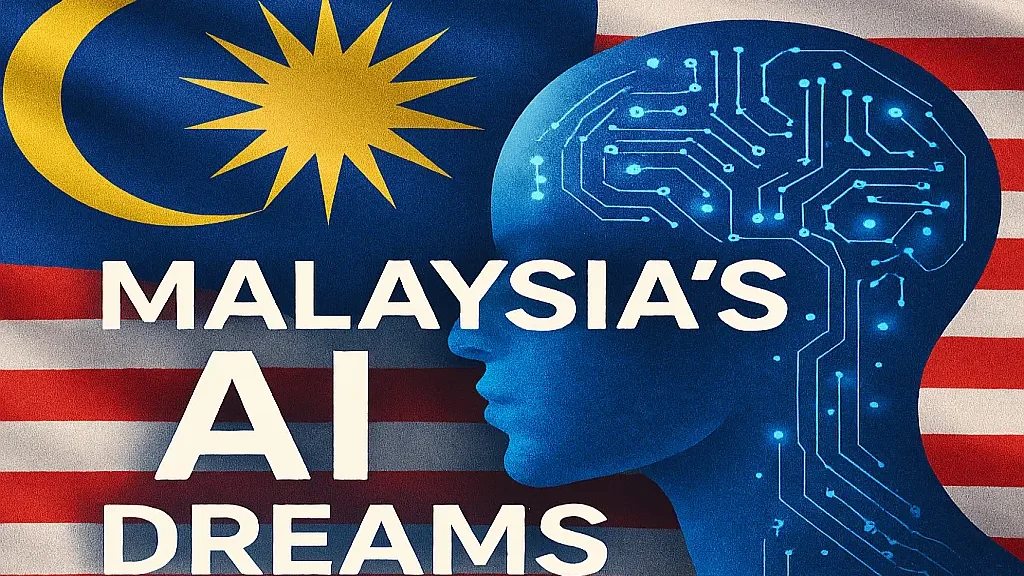Driving the Future: Malaysia’s Rapid Rise in AI Innovation and Investment

Malaysia is making significant strides in artificial intelligence (AI) development as part of its national economic and technological agenda, aiming to become one of the top 20 AI economies globally by 2030. This aspiration is being pursued through strategic government initiatives, robust investment attraction, development of local AI talent, and the launch of homegrown AI innovations.
National AI Vision and Roadmap
Malaysia’s Ministry of Science, Technology and Innovation outlines the National AI Roadmap 2021-2025 as a blueprint to embed AI technologies extensively across industries, with a target contribution of over RM60 billion to the gross domestic product by 2030. The roadmap reflects AI as a critical driver for Malaysia’s economic future, moving beyond just a technology to a necessity. The government is focused on accelerating AI adoption through structured programs like MRANTI AI Connect 2025, facilitating problem-solution matching, pilot projects, and commercialization support across sectors, aiming to enhance the country’s global competitiveness in AI.
Ad Content
Malaysia has attracted RM13.29 billion in approved AI sector investments in just the first half of 2025, yielding nearly 7,000 new jobs. The Digital Minister highlights that AI contributes about 23.5% to the national GDP as of 2023, with goals to increase it to 25.5% by the end of 2025. These investments underline growing investor confidence in Malaysia as an emerging regional AI hub and reinforce ongoing efforts to position the country prominently in the global digital economy and AI ecosystem.
ASEAN AI Leadership and Collaboration
In August 2025, Malaysia hosted the ASEAN AI Malaysia Summit 2025, uniting over 1,500 stakeholders from the region and global tech leaders to promote sustainable and inclusive AI development. This event underscored Malaysia’s commitment to responsible AI governance, ethical development, and regional cooperation, aiming to align AI development with ASEAN values of equity and inclusiveness.
Homegrown AI Innovations: Ilmu Chatbot
A landmark milestone for Malaysia is the launch of Ilmu, the nation’s first multimodal large language model developed locally by YTL AI Labs in collaboration with Universiti Malaya. Ilmu, designed to rival top global AI models like GPT-4, is tailored to Malaysian languages and cultural contexts, with data and servers hosted domestically to ensure digital sovereignty. Its applications span education, public services, and industry, and the rollout begins with a web and mobile chatbot called Ilmuchat on Malaysia Day 2025. Initiatives such as the Ilmu AI Accelerator Programme encourage startups and enterprises to integrate AI innovations across sectors.
Talent Development and Infrastructure
The Malaysian government is heavily investing in AI talent development, with programs such as Huawei’s commitment to train 30,000 Malaysian AI professionals by leveraging local and global expertise. This is complemented by the National Cloud Computing Policy (NCCP), which fosters a competitive and secure digital infrastructure foundation critical for AI growth. Efforts include collaboration between government, industry, and academia to nurture AI skills and ensure inclusivity across demographics, reflecting a comprehensive strategy for workforce development and technology adoption.
Charting the Future
Malaysia’s AI landscape in 2025 is marked by accelerated investments, strategic policy implementation, regional leadership, and breakthrough homegrown AI technologies. These efforts collectively position Malaysia as a rising force in the global AI economy, fostering innovation, economic growth, and technological sovereignty while stressing ethical and inclusive AI development aligned with national values. However, the realization of Malaysia’s AI ambitions could be impacted by factors such as political instability and resource availability. Political stability and good governance remain crucial to sustaining investor confidence, enabling continuous AI policy implementation, and maintaining national unity amid rising digital misinformation challenges. Additionally, the efficient allocation and availability of resources, including AI talent, infrastructure, and funding, are essential to support Malaysia’s long-term AI development goals. Any disruption in these areas could slow progress or create gaps in the nation’s AI ecosystem. Addressing these challenges alongside technological advancements will be vital to ensuring Malaysia’s AI dreams are fulfilled.
Enjoyed this post?
Subscribe to Evervolve weekly for curated startup signals.
Join Now →







